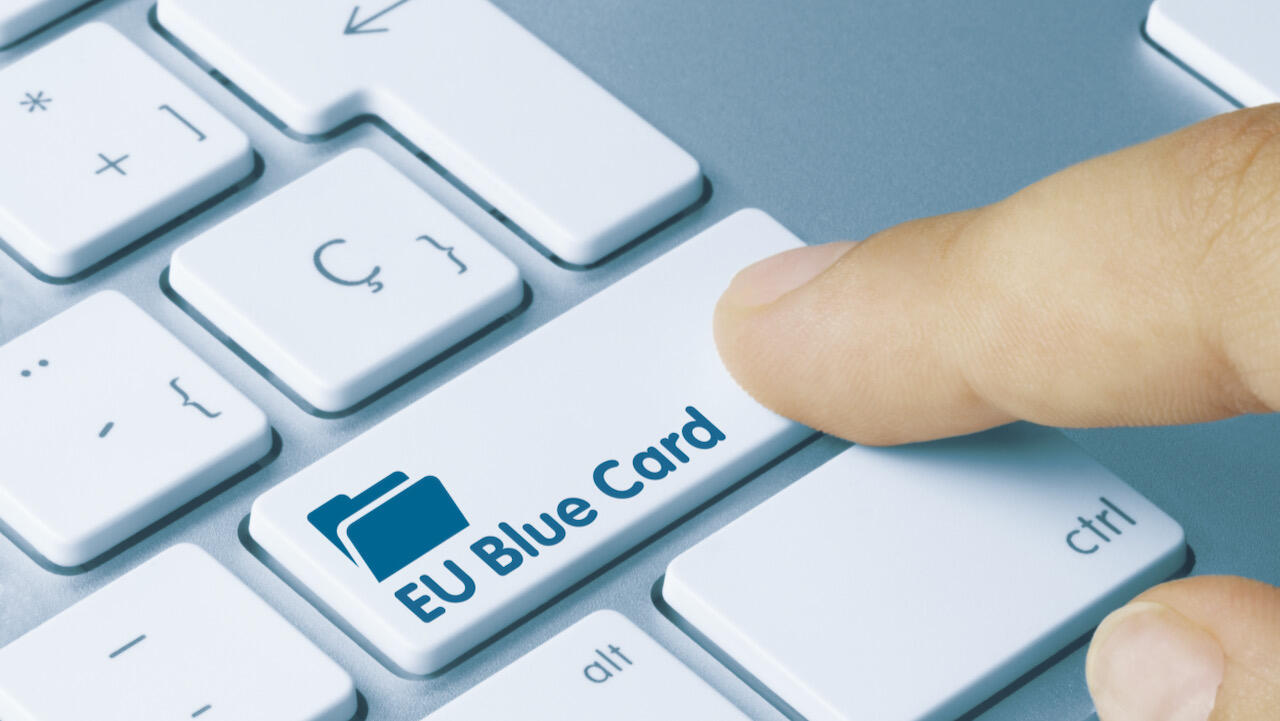

The EU Blue Card is similar to the American Green Card. It is a special form of residence permit for those who want to work as qualified professionals in Germany. You can apply for an EU Blue Card whether you are already in Germany or still abroad in another EU country or a so-called "third country". You can find out how to apply in section "Where can I apply for an EU Blue Card?" below.
The new EU Blue Card: From November 18, 2023, the immigration options with EU Blue Card are partially expanded . The requirements are regulated in Sections 18 , 18b , 18c , 18g and 19g of the Residence Act , which are based on the EU Directive 2021/1883 .
The EU Blue Card offers the opportunity to apply for a national residence permit in accordance with Section 18g Residence Act . It can be a great option for academic professionals , experienced IT specialists without a university degree and graduates of so-called "tertiary education programmes".
Advantages of the new EU Blue Card: More occupational groups are taken into account and the minimum salary thresholds have been lowered. German language skills no longer need to be proven in order to apply for an EU Blue Card. This also applies to the reunification of spouses. Easier access to permanent residence ( S ettlement P ermit according to § 18c para. 2 Residence Act ) is also significant: residence periods are much shorter and employment is subject to social security contribution s . In addition, the language requirements for applying for permanent residence have been significantly lowered (A1 is sufficient).
Important: T he new EU Blue Card regulations require quite an adjustment within German bureaucracy . Therefore, the process may be slightly delayed.
Please note: An EU Blue Card can be applied for in all EU Member States except Denmark, and Ireland. However, the preconditions, such as the amount of the minimum annual salary, differ from country to country.
If you have any further questions, you can visit our community platform “ Together in Germany ”. Our community managers will be happy to help !
*Th e information on this page has been reviewed and verified by our consulting lawyer Astrid Meyerhöfer.
The new EU Blue Card regulations ( since November 18, 2023 ) will make it easier for qualified skilled workers to immigrate to Germany. For example, the salary thresholds are lower than before. In addition, more professionals can apply for the EU Blue Card, including:
with a minimum annual gross salary of at least €45.300 (in 2024), which is 50% of the annual contribution ceiling in the general pension insurance in Germany (“ Beitragsbemessungsgrenze in der allgemeinen Rentenversicherung ”).
Important: Make sure that your future job is "qualification-appropriate“, i.e., the job must be related to the qualification you obtained during your time in a university (also University of Applied Sciences) or tertiary education. In other words, the job can not be something for which vocational training ( within the meaning of § 18b Residence Act) suffices .
Please note: When the new law is enforced, the job offer based on which you apply for an EU Blue Card must provide for a minimum employment duration of six months.
Important: In the shortage occupations (“Mangelberufen “ or “ Engpassberufen ”) , the Federal Employment Agency has to approve the recruitment. This is to ensure that foreign workers are not employed under worse working conditions than German workers, that the job is appropriate to their qualifications and that the individual is actually employed inside Germany. You can find out more by checking this detailed list of shortage occupations in Germany .
Please note that for some professions, such as doctors, lawyers, etc., it is necessary to have a separate professional licence and to prove the equivalence of the qualification. You can learn more in our chapter " Recognition of Qualifications ".
To shorten the approval procedure, your future employer can apply for approval before you enter Germany at the Central International and Specialist Placement Service (ZAV) .